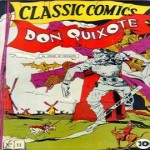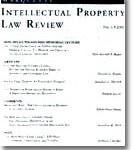Another Win for Veoh
 On Friday, the district court in UMG v. Veoh granted summary judgement in favor of Veoh. Decision here, courtesy of Copyrights & Campaigns. UMG, a record label, had sued Veoh, a site hosting user-posted videos, claiming infringement of its music videos. UMG is the second decision to come down on the issue of the responsibility of site owners to deal with continual user infringement under Section 512 of the Copyright Act, and like Io v. Veoh, it’s a big win for site owners. The big one remaining, of course, is Viacom v. YouTube, pending in the Southern District of New York.
On Friday, the district court in UMG v. Veoh granted summary judgement in favor of Veoh. Decision here, courtesy of Copyrights & Campaigns. UMG, a record label, had sued Veoh, a site hosting user-posted videos, claiming infringement of its music videos. UMG is the second decision to come down on the issue of the responsibility of site owners to deal with continual user infringement under Section 512 of the Copyright Act, and like Io v. Veoh, it’s a big win for site owners. The big one remaining, of course, is Viacom v. YouTube, pending in the Southern District of New York.
There’s bound to be some comment on how this is helpful precedent for YouTube, but I think the cases are importantly different. I’ve noted repeatedly that I think Viacom’s best fact—indeed, possibly the decisive factor in bringing the suit—is that YouTube at one point seemed to be selectively offering to filter uploaded content. See my analysis of this issue from earlier this year.
It doesn’t appear that UMG had anything like this fact to hang its case on.

 This blog has seen an extended discussion on the topic of literary characters and copyright law. It began with my post
This blog has seen an extended discussion on the topic of literary characters and copyright law. It began with my post 